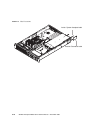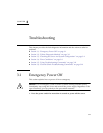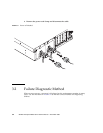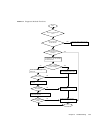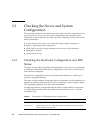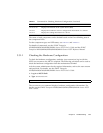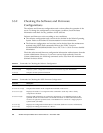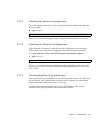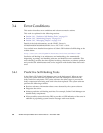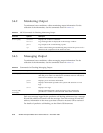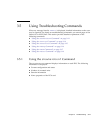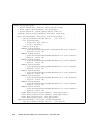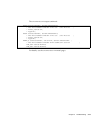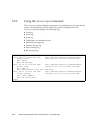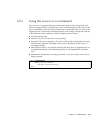
3-8 SPARC Enterprise M3000 Server Service Manual • November 2009
3.4 Error Conditions
This section describes error conditions and relevant corrective actions.
This work is explained in the following sections:
■ Section 3.4.1, “Predictive Self-Healing Tools” on page 3-8
■ Section 3.4.2, “Monitoring Output” on page 3-10
■ Section 3.4.3, “Messaging Output” on page 3-10
Details of the fault information, see the SPARC Enterprise
M3000/M4000/M5000/M8000/M9000 Servers XSCF User's Guide.
You can find more detailed descriptions of Solaris OS Predictive Self-Healing at the
website below:
http://www.sun.com/bigadmin/features/articles/selfheal.html
Predictive self-healing is an architecture and methodology for automatically
diagnosing, reporting, and handling software and hardware error conditions. This
new technology reduces the time required to debug a hardware or software problem
and provides the administrator and service engineer with detailed data about each
error.
3.4.1 Predictive Self-Healing Tools
In the Solaris OS, Solaris Fault Manager runs in the background. When an error
occurs, the system software recognizes the error and attempts to determine the
faulty hardware component. The system software also takes steps to prevent the
faulty component from being used until it has been replaced. The system software
performs the following activities:
■ Receives telemetry information about errors detected by the system software.
■ Diagnoses the errors.
■ Initiates predictive self-healing activities. For example, Solaris Fault Manager can
disable faulty components.
■ When possible, causes the faulty FRU to provide an LED indication of the error in
addition to populating system console messages with more details.



